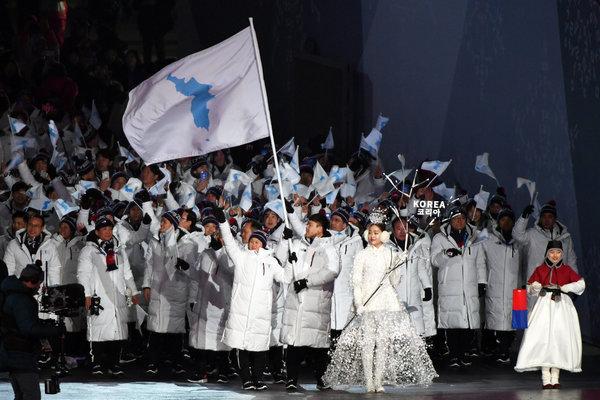The Peninsula
Public Support for Inter-Korean Sports Diplomacy Cools

This briefing comes from Korea View, a weekly newsletter published by the Korea Economic Institute. Korea View aims to cover developments that reveal trends on the Korean Peninsula but receive little attention in the United States. If you would like to sign up, please find the online form here.
What Happened
- President Moon Jae-in met with the head of the International Olympic Committee to seek his support for a joint Korean bid for hosting the 2032 Summer Olympics.
- During the meeting, Moon also advocated for North and South Korea to compete as one team in the 2020 Tokyo Olympic Games.
- The two Koreas most recently played as a unified team in the 2019 World Handball Championship.
Implications: While President Moon sees joint participation in international sporting events as a vehicle to advance inter-Korean engagement, tepid domestic support for these efforts correspond with findings that South Koreans may be losing their co-ethnic affinity to North Koreans. A survey in 2018 found that public endorsement for North and South Korea’s co-hosting the Olympics fell from 66% to 47% if respondents were told that Seoul would help fund the construction of facilities in North Korea. This upholds findings that suggest South Koreans, particularly younger cohorts, are beginning to identify the two Koreas as distinct and separate countries. If true, this presents an obstacle for the Moon administration even if there is a diplomatic breakthrough as there might be domestic pushback to allocating national resources for the economic development of North Korea.
Context: South Korea already faced domestic backlash for fielding a late-minute unified hockey team to compete at the Pyeongchang Olympics in 2018. A survey found that 80% of respondents generally supported North Korea’s participation in the games, but 49.4% of people polled by a Realmeter survey showed a preference for North and South Korea marching under their respective national flags. These results suggest that animosity toward North Korea is not the source of South Korean tepidness towards joint participation in sporting events – rather, it may be an acknowledgement of a separate and distinct national identity.
Korea View was edited by Yong Kwon with the help of Soojin Hwang, Hyoshin Kim, and Rachel Kirsch.
Picture via James Hill published in The New York Times
